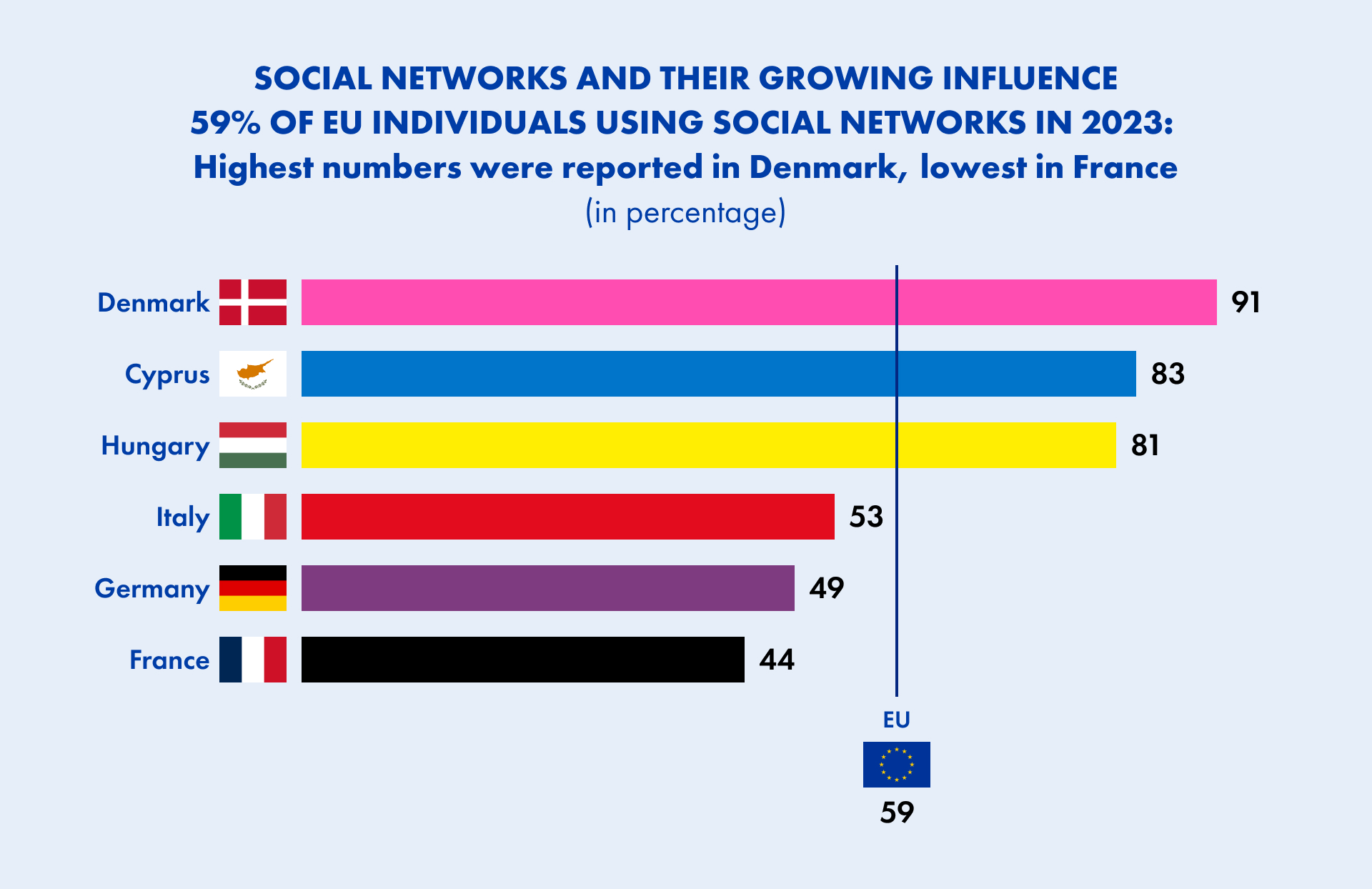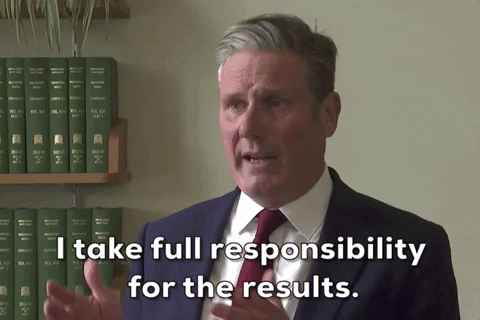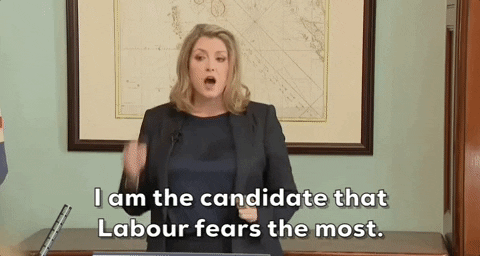Issue #161
Guten Morgen! Welcome to Krautshell, your insider’s guide to the latest developments in European politics and regulatory landscapes. This week, the EU plans to use frozen Russian assets to aid Ukraine, sparking debates over accountability. In Germany, political deadlock persists in the Bundestag, while cannabis legalization sees progress. In the UK, Prime Minister Rishi Sunak remains optimistic amid economic challenges, countered by shadow Chancellor Rachel Reeves’ calls for reform. Amidst Conservative Party discord and leadership speculations, the political landscape remains volatile. In our WOOM, Charles provides insightful commentary on the challenges facing UK politics. Stay tuned for updates and analysis. Happy reading, and here’s to positive developments ahead! Anna Szilvia WHAT TO WATCH THIS WEEK: EU to use frozen Russian assets to support Ukraine It has been a busy week in the EU Quarter in Brussels. Heads of government met on Thursday and Friday to discuss several key issues, including EU support for Ukraine. As a result, the European Union is ready to use interest gains from frozen Russian assets to help Ukraine, including buying weapons for Kyiv. Commission President Ursula von der Leyen stated that the first installment of 1 billion euros from the scheme could be distributed as early as July 1st. The Commission suggests transferring 90% of profits to an EU-managed fund for purchasing arms for Ukraine, with the remaining 10% allocated for budgetary assistance. Estimates indicate that annual profits from these assets could range between 2.5 billion and 3 billion euros. Just a few hours later, and two years after invading Ukraine, the Kremlin has admitted for the first time that Russia is at war. Not without blaming the West for turning a “special military operation” into a war. The idea of making Russia pay for the consequences of the war in Ukraine may sound plausible. But its implementation is politically sensitive, and member states have been discussing it for more than a year. The plan, which Moscow condemns as theft, has strong backing from EU heavyweights Germany and France. However, some countries, particularly neutral states such as Malta, Austria and Ireland, have expressed concerns about the money being used for military purposes. Ukrainian President Volodymyr Zelenskiy urged the EU to go even further and consider using the assets itself, a step not currently being considered by the EU… REGULATORY INSIGHTS: Stuck in the Bundestag: Germany’s Political Paralysis The German political landscape is mired in gridlock as crucial legislation remains stalled in the Bundestag, creating frustration and stagnation among the ruling coalition partners. At this rate, they might as well install a revolving door labelled “Policy Progress: This Way to Nowhere.” Several key legislative initiatives, such as the introduction of a payment card for asylum seekers and efforts to boost domestic solar energy production, are deadlocked due to internal disagreements. Disputes over fundamental aspects persist in other areas, such as the Child Basic Income proposal. The Rent Control extension, a coalition agreement item, is hampered by the FDP’s resistance, raising suspicions of deliberate delay tactics. The Climate Protection Law, which aims to unify climate goals across sectors, is facing friction as the Greens push for stronger sectoral responsibilities, especially in transport, to address perceived shortcomings. However, the Bundesrat (chamber of the federal states) approved a growth package for companies. The federal and state governments have been wrangling over this for months. To plug a billion-euro gap in the federal budget, the Bundesrat gave the green light for the reduction of subsidies for agricultural diesel. At the same time, the German government announced a package of measures to support agriculture. The Bundesrat further cleared the way for the legalisation of cannabis. As with almost every legislative proposal, legalisation was preceded by a long dispute. The CDU-led states in particular opposed the law. Friedrich Merz (CDU), a potential candidate for chancellor in the 2024 elections, immediately announced that he would overturn the planned law if he became chancellor next year. The coalition’s failure to advance critical legislation underscores growing frustration and challenges in governance. But fear not, for in the grand tradition of German efficiency, rest assured that eventually, maybe, possibly, something might get done… perhaps. THE BIG PICTURE: Rare unity at the EU summit in Brussels In contrast to the Bundestag, progress has been made at the European level, namely at the EU summit in Brussels, where member states reached unanimity on various fronts. Concerning the Gaza conflict, EU leaders, including German Chancellor Olaf Scholz, called for an immediate ceasefire to address the humanitarian crisis. This unified stance, the first in five months, came after initial divisions among member states. The EU urged Israel to refrain from a ground offensive in Rafah, Gaza, to prevent worsening the humanitarian situation. Additionally, the EU agreed to proceed with accession talks with Bosnia and Herzegovina, contingent on the country meeting reform requirements related to the rule of law and combating corruption and organized crime. This move aims to prevent the Balkan nation from aligning with Russia or China. With regard to Ukraine, an agreement was reached on the use of interest income from frozen Russian assets, as described above. Commission President Ursula von der Leyen also announced proposals to increase tariffs on Russian grain and other agricultural products to prevent the destabilization of the EU market and curb the sale of Ukrainian grain stolen by Russia. EU member states had requested measures to restrict Russian grain imports, citing significant increases in recent years. Who knows, perhaps the German government can take an example from the EU summit when it comes to reaching agreement… In a world where the UK’s economy often resembles a rollercoaster ride at the local fair (albeit with less screaming and more furrowed brows), Prime Minister Rishi Sunak has emerged in the blue corner to declare brighter days ahead in 2024. With an optimism that could almost light up the gloomy British weather, he points to the lowest inflation rate in over two years at a modest 3.4%, courtesy of the British people’s collective decision to dine out less and perhaps embrace the art of home cooking. It must be noted however, the Bank of England’s target for inflation is 2%. But it’s not all sunshine and rainbows; with the persistent hikes in housing and fuel prices, there is still a grey economic cloud hovering over Parliament. Yet, Sunak assures us we’re on the mend, economic conditions are on the upswing and the Government is working tirelessly to cut taxes, providing some relief to strained wallets across the nation. While in the red corner, we have the Shadow Chancellor (the UK’s shadow finance minister) Rachel Reeves, donning her economic gloves in her ‘Mais Lecture’ (regarded as the City of London’s foremost event for the banking and finance community), ready to tackle the “almost impossible trade-offs” that loom ominously on the horizon. If elected, Ms Reeves plans to give the Treasury a makeover, prioritising growth and productivity. While the Conservatives point to what they claim is a lack of a concrete plan, Reeves powers on undeterred, promising a fiscal tightrope walk. And then there’s the Bank of England, standing firm with the interest rate held steady at 5.25%. Despite the alluring siren song of lower rates, they remain cautious, not wanting to rock the economic boat too much, hoping to navigate us safely through the inflation tempest. Source: ec.europa.eu Wake Up! There’s More at Stake than the Future of Ukraine Last weekend, over three days there was a semblance of a presidential election in Russia. The outcome was no surprise. Vladimir Putin has been assured a fifth term as President, which will allow him to remain in power until at least 2030. Outside observers and analysts have argued that the 2024 Russian presidential “election” was more heavily manipulated than any other election in Russia’s post-Soviet history. Opposition figures who could have challenged Putin were imprisoned or exiled abroad. Independent media outlets that were critical of Putin’s policies were blocked. And, the death of Alexei Navalny intensified the atmosphere of fear in which the vote took place. This election deserves some attention because it was the largest public test of the Russian state’s ability to shape its desired result at home since Putin’s full-scale invasion of Ukraine in 2022. But, the coercion and suppression on display in Russia are also stark reminders of what is at stake in Ukraine – and it is much more than the future of Ukraine! A False Sense of Reality? For two years, political leaders, government officials, policy-makers, as well as representatives from thinktanks, academia, and the media have been arguing that we cannot look at Russia’s unjustified attack on Ukraine in a vacuum and that Europe and the United States cannot let Russia win. The consequences for the international order would be too great. As interest in the war wanes among citizens in Germany and the United States and the prospect of funding languishes in the halls of Congress, some people seem to be arguing for a capitulation. Pope Francis has called on Ukraine to show the “white flag” and negotiate with Russia. German parliamentarian Rolf Mützenich (SPD) has suggested “freezing” the war in Ukraine. Having said that, although he is trying to position himself as the Friedenskanzler (“Peace Chancellor”) for the upcoming German election in 2025, Chancellor Olaf Scholz stated in no uncertain terms in a speech this week before the Bundestag that Russian President Vladimir Putin had made a serious mistake if he thought Germany would relent in supporting Ukraine. At a dinner in Atlanta with a group of German expats in the United States earlier this week, one person expressed frustration at the dwindling awareness of and interest in the war in Ukraine in Germany (and the United States). After all, the distance from Berlin to Kyiv is about the same as the distance from Berlin to Rome. A Lost Sense of History? As we see growing ambivalence over Russia’s full-scale invasion of Ukraine and bickering over aid to Ukraine, it feels almost akin to a sentiment expressed by British Prime Minister Neville Chamberlain in the fall of 1938. Preparing to travel to Munich for a peace conference after Nazi Germany made territorial demands on Czechoslovakia, he described the situation as “a quarrel in a faraway country between people of whom we know nothing.” For Germans who have come of age after the horrors of World War II, they have lived in peace and prosperity. For those who have reached maturity after the fall of the Wall, they have taken this for granted. One of the guests at the dinner in Atlanta said that they feared that Russian forces would have to be at the borders of the EU before Germans will take the threat posed by Russia seriously. It struck a chord – because if that happens, it’s too late. It’s time to wake up and recognize that there is more at stake than just Ukraine – and take action. Here is an appointment for next week that you should have on your radar: ROUGH SEAS FOR RISHI Despite claims last year from his loyal supporters that the Conservative Party was “unified”, party discipline has been hard to come by for the Tories in recent weeks. Pity the poor PM, who has been having to firefight his own party on the rising siren song of Reform UK (which threatens to poach voters and potentially MPs from the Conservative Party), recent comments from Tory donor, Frank Hester, who has caused controversy over racist remarks the PM has been slow to condemn, and an increasingly agitated grassroots that are not satisfied with their taxes, the economy, or the Government’s record on migration. The Tory civil war now threatens to consume the Prime Minister’s legislative agenda too. One of the Prime Minister’s “flagship” policies, the Generational Smoking Ban, details of which were published this week, is now touted as likely to suffer from a substantial rebellion, with 70 Conservative MPs sitting in the rebel camp. The Government currently enjoys a simple majority of 54 seats following a spate of by-election losses, defections, and suspensions, meaning as things currently stand, they will be forced to rely on Labour to see the legislation through. Irrespective of the policy, this is bad news for the beleaguered Prime Minister who hands an easy line and win to the Opposition on a piece of legislation he had hoped would be his legacy. More broadly, however, it lends further heat to the simmering narrative that the Tory party, past-masters at the game of political regicide, may be lining up to once again topple a leader. The “smoke-filled rooms and teashops” of the internal politics of the Tory party seem alive with whispers. Sharpening her blade for a stab at the leadership may well be the current Leader of the House of Commons, Penny Mordaunt MP: who after a somewhat lacklustre former leadership bid against both Rishi and Liz Truss in 2022, shot to stardom and to the hearts of many with her deft wielding of the jewel-encrusted blade at King Charles’ coronation. The reason why Penny clearly is eyeing the leadership is that her name is being touted by everybody except, you guessed it, Penny Mordaunt herself. While earlier this week the fervour around Penny was quite substantial, this threat seems to have quietened down… for now. However, it is worth bearing in mind that Penny hits many of the buttons necessary for the Tory party: she is firm on Brexit, robust on the armed forces, and tough on immigration. Unlike the current PM, Penny also has the distinct advantage with the British public of not being a billionaire, nor from the Oxbridge set: which would make her more relatable. Of course, a leadership change at this stage in the game is not likely to turn the fortunes for the Conservative Party electorally, but many are thinking that maybe, just maybe, it could lead to a less disastrous performance in the polls than presently anticipated. Keep your eyes peeled for the upcoming local elections, where a severe defeat for the Conservatives will likely see these tensions once more rise to the top. The Westminster Bubble waits with bated breath. Issue #161


FIRST, SOME SOLID INTEL:
AND WHAT’S UP IN GREAT BRITAIN?
TAKE A BREAK, GIVE YOUR EYES A REST:

THE (GUEST) HOUSE’S VIEW:
LONG STORY SHORT:
OUTLOOK:
When?
What?
March 26th, 2024
BASECAMP Kitchen Talk with Economic Minister Dr. Robert Habeck (Berlin & online)
Easter Break
WHAT’S ON OUR MINDS:






